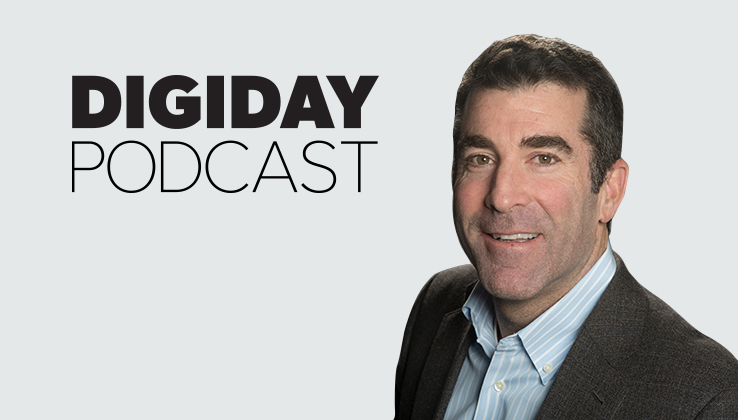Save 50% on a 3-month Digiday+ membership. Ends Dec 5.
Washington Post’s Jed Hartman: The industry needs to stop whining about the duopoly

Subscribe: iTunes | Stitcher | RSS
While Google and Facebook hamper publishers’ efforts to grow digital ad dollars, The Washington Post CRO Jed Hartman said on this week’s Digiday Podcast that publishers need to figure out their unique value and stop “whining about the platforms.”
“I would rather find our unique selling proposition and exploit that as best as possible, partner when necessary and go on our own other times,” he said. “[The duopoly is] good at selling advertising. We will bring a different value.”
Below are highlights, edited for clarity.
The Jeff Bezos effect
“There is an experimentation culture. You do everything you can to make that experiment work. Jeff [Bezos] is really involved, and he’s the chief inspiration and innovation officer for focus on product and a frictionless customer experience. Another Jeff-ism is, if it’s core to your business, why would we outsource [our CMS]? Google doesn’t do it.”
The paywall, not Trump, is behind the subscription growth
“Trump has made politics pop culture, whether you love or hate his tweets and policy. But he’s fascinating. It brings more people to the Post because it’s a part of our DNA. But we saw a surge in subscriptions after we tightened our paywall to three [free] articles a month. Fake news has made people want to go to brands, which they trust will fact-check. But if you put up a paywall, where is the user going to go? They trust you. So they are more likely to pay you and drive your subscription business.”
Ad position: web_incontent_pos1
Building a CMS for the Post
“We built a CMS for our business because there was no CMS that worked for us. Not many publishers invest deeply, so why would the platforms invest to make it the best? So we built a platform called Arc. And we like it, so maybe others will like this. Many other publishers use this. It’s a legitimate revenue stream right now.”
Competing with the platforms
“The pendulum swung massively to audience because technology allowed for that. I feel a swing back to quality, fueled by the conversation around brand safety, ad fraud, bots and trust. But we won’t see that in the numbers for a very long time, if ever. The convenience of pushing a button and reaching your audience to buy Facebook or Google is very appealing. But there’s an enormous global ad market. There’s a lot of money for great companies if they have a unique value that is not commoditized.”
More in Media

What publishers are wishing for this holiday season: End AI scraping and determine AI-powered audience value
Publishers want a fair, structured, regulated AI environment and they also want to define what the next decade of audience metrics looks like.

Digiday+ Research Subscription Index 2025: Subscription strategies from Bloomberg, The New York Times, Vox and others
Digiday’s third annual Subscription Index examines and measures publishers’ subscription strategies to identify common approaches and key tactics among Bloomberg, The New York Times, Vox and others.

From lawsuits to lobbying: How publishers are fighting AI
We may be closing out 2025, but publishers aren’t retreating from the battle of AI search — some are escalating it, and they expect the fight to stretch deep into 2026.
Ad position: web_bfu